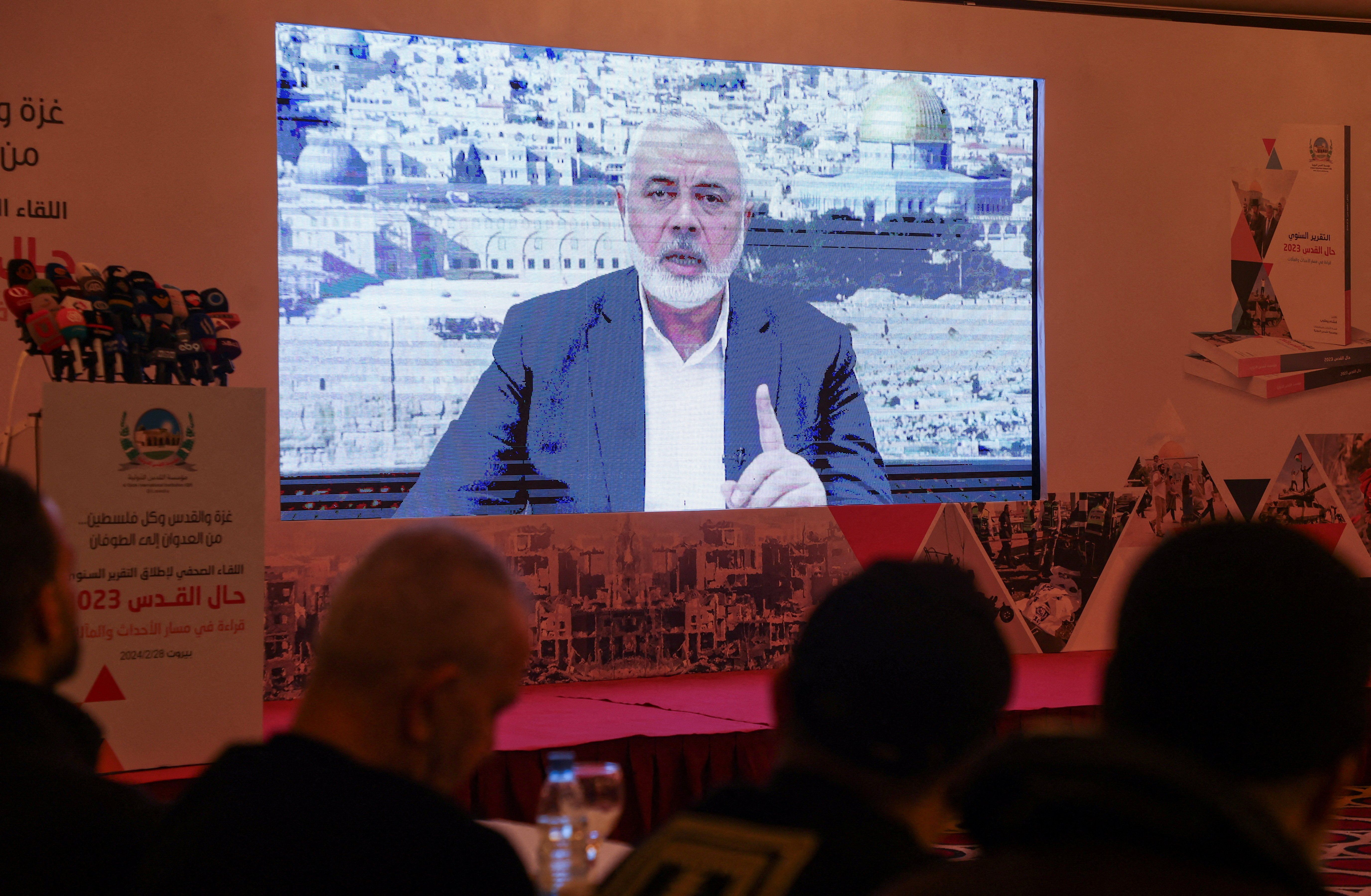Hamas leader Ismail Haniyeh on Wednesday called for a march on Al-Aqsa Mosque in Jerusalem at the start of Ramadan, upping the ante as negotiators work to secure another cease-fire in Gaza.
The Al-Aqsa/Temple Mount compound is sacred to Jews and Muslims, and has long been a flashpoint in the Israel-Palestine conflict. Hamas called its Oct. 7 terror attack “Al-Aqsa Flood,” and Israeli Defense Minister Yoav Gallant on Tuesday said the militant group’s push for Ramadan demonstrations is part of a “second phase” of that plan.
Israel has set security restrictions at Al-Aqsa during Ramadan, and protests at the compound could lead to a heavy response from Israeli forces — increasing international scrutiny of the Jewish State.
Cease-fire talks up in the air: The clock is ticking for negotiators to secure a truce in Gaza. The Muslim holy month starts the same day as the March 10 deadline that Israel set for Hamas to release hostages — or face an invasion of Rafah.
Amid mounting criticism over its support for Israel, the US has expressed optimism a deal is imminent. Meanwhile, Haniyeh on Wednesday said Hamas was exhibiting “flexibility” in the negotiations, but emphasized the group was prepared to continue fighting Israel.
